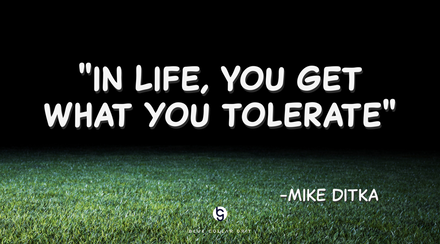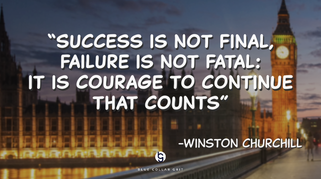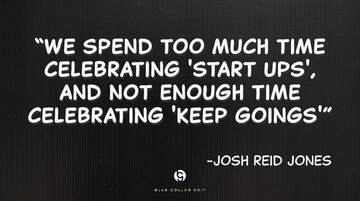Just Coach Your TeamI started my coaching career as a completely naive, arrogant, and ignorant twenty-two year old at my alma mater serving as the assistant to my high school coach and mentor, Dave Zeller. Coach Z was a legendary coach that was an All-American player for Miami, OH and a back-up to Oscar Robertson for a few years in the NBA.
He was set to retire just as I was finishing college and entering the teaching, and coaching, market. Actually, he did retire. That is, until I called him and begged him to return for a year so I could “learn how to coach”, as he would recite for me numerous times over the next year. Ever the servant, Coach agreed to return while warning me of the team's limited talent level and likelihood of a rough season ahead. The news didn’t sway my excitement as I looked forward to sitting on the bench and soaking up everything I could from Z. His meticulous preparation, personal gifts to lift his player spirits, spot on scouting reports, in-game adjustments to take advantage of what few advantages we had, and stoic poise on the sideline were even more appealing as his assistant rather than one of his players. I was given a backstage pass into the mind of a basketball genius for a season. And, I did my best to soak it all in. Why Should We Care? I remember several of the plays and am proud to use a few of them to this day. I remember our huddle break, which was the same as when I played for him and drove home the unselfish style he expected from his teams: “Hit the open man!” I remember the little notes he would sneak into a scouting report - “see me for $5” - just to be sure his guys were reading it. But, most of all, I remember the advice he gave me when I asked him how he managed to stay so calm and composed on the sidelines all the time. His response was simple and matter-of-fact, as if he didn’t realize the power of what he was saying. Of course, that couldn’t have been further from the truth. His response: “Just coach your team”. He added context by reminding me that when things are good to coach my team; when things are bad to coach my team; when the referees are terrible to coach my team; when parents are complaining to coach my team; when people are talking good about us to coach my team; when people are talking bad about us to coach my team. Watching college football games this weekend and the accompanying pre-game talks, halftime speeches, and post-game interviews; I couldn’t help but think of Coach Z and his advice. REAL TALK - Action Steps The ego is a dangerous thing. It fools us into concerning ourselves with areas of our lives that we can’t control. This, by default, distracts us from the few things that we can control. It took me many years to realize that it’s this attention to focus on the controllables that Coach Z was referring to the whole time. Here are a few things that garnered attention from coaches this weekend, and me often, that were beyond their control. Things that distracted them from just coaching their teams.
Sure, several coaches got to beat their chest and claim their dominance. They had the opportunity to rebuke the negative opinions expressed by others and make their egos feel good, but I can’t help to think that we would all be better off if they would just stay focused on coaching their teams. For more information on building excellence in your teams, visit us at www.bluecollargrit.com. We would love to know how we could help!
1 Comment
Tolerating Those Who DoThe United States Military Academy at West Point has a code of honor which states, “a cadet will not lie, steal, cheat, or tolerate those who do.” Violation of this code for a cadet results in a formal investigation and a hearing process conducted by a group of their peers. Found guilty by their peers and the case will make its way up the chain of commands.
The first part of West Point’s Honor Code is as straightforward as you can get: do not lie, steal, or cheat. This is not only typically clear for a cadet choosing to join the academy, but also fairly easy to avoid for those at West Point. After all, character, to which all those points, is a significant factor in acceptance in the first place. The challenge, for most, is certainly in the second phase of the code: do not tolerate those who do. Although we may not like it, we can usually take responsibility when we have violated a code that we have chosen to accept. The problem, or question, is what are we going to tolerate? Why Should We Care? This is not a question for leaders within the United States Military Academy. This is the question for every leader of every team in the world. Whether you lead a Top 500 Company or a start-up, a Top 25 team or a Little League team, a congregation of a thousand or a family of five, the question remains the same: what will you tolerate? See, unfortunately you don’t get what you want. You get what you tolerate. Allow your child to be disrespectful, then they’ll be disrespectful. Allow kids to have their phones out at the dinner table, then they’ll have their phones out at the dinner table. Allow team members to show up late for meetings and they’ll show up late for meetings. Of course, not all of them. But, the performance of our team will always sink to the level of our lowest denominator. So, what we are tolerating ends up being what we are getting. Clearly those at West Point understand this point clearly. In their mind, doing it and allowing it are equally damaging. Consider that for a moment. Allowing a teammate to lie is equally as damaging as lying yourself. Permitting a teammate to steal is no different than you stealing yourself. Letting a teammate cheat is equivalent to you cheating yourself. Carry that thought on out … allowing a friend to be late is equally detrimental to the team as you being late; allowing a teammate to skip reps or not touch the line is the same as you not touching the line; accepting excuses from a friend is no different than you making the excuse yourself. What you tolerate is just as much an indication of your character as what you do. REAL TALK - Action Steps Drawing a line on what we tolerate requires courage. And, courage requires confidence in who we are and what we believe. With those in place, it simply becomes a choice. Here are a few options that may help you more consistently choose what you tolerate.
What you tolerate is a reflection of your standards, not someone else’s. We like to release ourselves from responsibility when we aren’t the ones taking action. Turns out, what we do and what we tolerate are equally damning. For more information on building excellence in your teams, visit us at www.bluecollargrit.com. We would love to know how we could help! Neither ExistKobe Bryant was a legendary basketball player. His size, athleticism, and skill set him apart from ninety-nine percent of all other players on the planet. Yet, what made him truly special wasn’t a physical gift or talent he developed. It was his mentality.
Kobe’s mentality was so well-known and well-respected that it was tagged with its own name: The Mamba Mentality. The name is as unique as Kobe’s view of competition. Take, for example, his take on whether he loves to win or hates to lose more. Kobe’s response: neither. He went on to explain that he believed an extreme in either direction was a weakness. Rather, he preferred to view every competition simply as an opportunity to learn. He wanted to know his own areas that were strengths or needed work. Every competition was nothing more than an experiment. His curiosity and want for growth superseded his desire for a specific outcome. Can you acknowledge how rare that is for anyone, let alone a hugely successful professional athlete that is compensated, and celebrated, almost exclusively because of those same outcomes? Pretty rare. Why Should We Care? It is this mentality to prioritize growth over outcome that fosters one of Kobe’s more poignant claims - that failure doesn’t exist. At first, the claim seems to be nothing more than semantics or a flippant, ridiculous comment to garner attention. Then he explains. “Seriously, what does failure mean? It doesn’t exist. It’s a figment of your imagination … The point is the story continues. If you fail on Monday the only way that’s a failure is if you choose to not progress from that. So, to me, that’s why failure’s not existent. If I fail today then I’m gonna learn something from that failure and I’m going to try again on Tuesday. And, if I fail, I'm gonna try again on Wednesday. It doesn’t exist.” It’s a powerful framework that robs failure of the fear it showers most people in. Knowing the story continues is reassuring and empowering. It evokes the courage to press the edges of our abilities and exit our comfort zones with no fear. Free of the need for the desired outcome, Kobe released himself to become the ultimate version of himself. Here’s the thing: Success doesn’t exist either. Just like failure, it’s a figment of our imaginations. And, from my experiences, buying into the reality of success is just as dangerous as that of failure. While the perception of success can breed success, it can also foster contentment and entitlement. Both of which are debilitating to our future production. Removing the concept of success from our mindset shines a brighter light on our process. It allows us to focus on becoming rather than arriving. The success we think we experience is nothing more than a part of the next process. REAL TALK - Action Steps In addition to a heightened focus on the process, eliminating the concepts of success and failure ultimately lead to acceptance. From acceptance we have the power to guide our lives in the best ways we see fit. Here are a few ideas on eliminating success and failure from your mindset.
Although we like to label experiences, and sometimes people, as successes or failures, the truth is they are neither. The experiences are all part of the process and the people simply becoming. For more information on building excellence in your teams, visit us at www.bluecollargrit.com. We would love to know how we could help! The CelebrationsSo far this fall I’ve watched two weekends of high school football and one weekend of college football. I’m happy to see our student-athletes compete and the college athletes showcase their talents against other equally talented peers. I’ve always enjoyed the community and team aspect of football.
The uniqueness of roles is appealing. There is very little overlap. In sports like basketball and soccer everyone pretty much does everything. Baseball and softball have clear roles defensively while all come together offensively in virtually the same role. In football, the clarity of role is refreshing. The quarterback takes the snap, hands the ball off, or throws it to a receiver. The linemen block. The running back runs the ball. The receiver catches the ball. The kicker kicks the ball. The team would be in trouble if, say, the linemen decided they would like to throw the ball rather than block or the running back would rather kick than run. It’s truly poetry when everyone fills their role to the best of their ability and the play works to perfection. Each player can take pride in doing their job and contributing to the success of the play. Enough successful plays and the team wins the game, not enough and the team loses. It’s a pretty simple equation. So, it makes sense that we should celebrate those positive plays throughout the game. The more of them we have the better, right? Why Should We Care? Celebrations are driven by emotion. Emotions evoke feelings that inevitably impact our behaviors. It would be great if we could separate the two, but unfortunately we’re terrible at doing that. And, it’s naive to think we will be better in the future. Our behaviors are central to our lives. They define who we are, as well as, who we will become. They determine where we are going and what we will accomplish. It’s our behaviors that dictate our priorities and identify our mission. These behaviors are initiated by either our identity or our emotions. One is inherently better than the other. If our emotions drive our behaviors then they will ride the same tidal waves as those emotions. The behaviors that we depend on to execute and perform will be the pawns of our feelings. As a result, our identity will merely be the varying reflection of our feelings. We will be who our feelings say we are in that moment. And, that rollercoaster is a really hard one to get off of. The other option is to discipline ourselves to allow our behaviors, then our feelings, to flow from our identity rather than the other way around. When we are in tune with our identity we establish a consistency in our actions that stabilizes our emotions. Thus, we free ourselves from the ebbs and flows of the emotional rollercoaster. Our performance is always best with option two. REAL TALK - Action Steps Back to the celebrations. Imagine the drastic fluctuation in emotions throughout a game. With every play benefitting your team comes a rush of positive emotions. This tidal wave, though desired in the moment, is something you will undoubtedly need to come down and recover from. Just consider how many of those plays could happen during the course of a game. We spend more time regulating our feelings than we do focusing on our responsibilities and our team. Here are few ideas on working from our identity rather than our feelings:
Competition is an emotional endeavor. Nothing is wrong with having them or sharing them. However, in order to be at our best we must regulate them. Allowing our identity to determine our behaviors and our behaviors to direct our emotions we set the stage for our best to consistently show up. Plus, we don’t look like we’re shocked to make a good play! For more information on building excellence in your teams, visit us at www.bluecollargrit.com. We would love to know how we could help! |
About bcI'm a teacher, coach, and parent seeking excellence while defining success on my own terms. Archives
July 2024
Categories |





 RSS Feed
RSS Feed